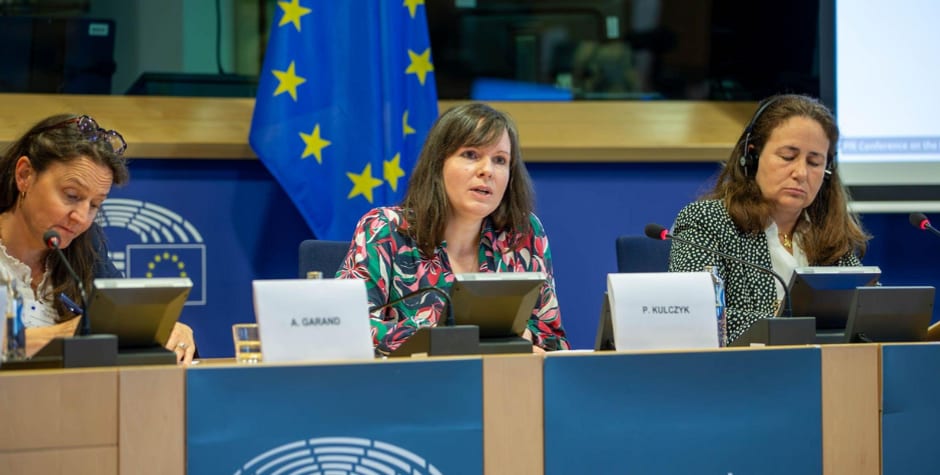

Protecting Children from Online Pornography: An Urgent Challenge for the European Union
Protecting Children from Pornography
On 10 June 2025, the European Centre for Law and Justice was at the European Parliament in Brussels to take part in a conference entitled "Children's exposure to pornography: a form of sexual abuse? It was organised by Spanish MEP Margarita de la Pisa (Patriots for Europe), in collaboration with ECLJ.
A European Directive on Child Sexual Abuse Under Revision
The event took place in the context of the current work of the European Parliament, which is recasting the 2011 directive on combating the sexual abuse and exploitation of children and child pornography. The aim was to draw MEPs' attention to the dangers of exposing children to pornography and the need to address this issue as part of the recast. As it stands, the text only contains a provision requiring States to take the necessary measures to make it a criminal offence to expose a child intentionally and for sexual purposes to pornographic content, which unfortunately does not address the exposure of children to online pornography caused by the lack of protection for pornographic sites.
The ECLJ Warns About Minors' Exposure to Online Pornography
Priscille Kulczyk, research fellow at the ECLJ, addressed this very issue. She began by showing that the exposure of children to pornography is a form of sexual violence that must be combated, in particular by ensuring that pornographic platforms are held accountable since they are largely responsible for it. She went on to explain that preventing children's exposure to pornography meets the objectives of the recast directive on sexual abuse and exploitation, in particular those of ensuring consistency between online and offline areas and preventing sexual abuse and exploitation of children.
Experts Call for Stronger Child Protection Measures
Other experts spoke on this first panel. Through the prism of psychology, French psychologist Marie-Estelle Dupont highlighted the link between children's exposure to pornography and the issue of sexual abuse, underlining the consequences of the intrusion and trauma that such viewing represents for a child. Aurélie Garand, a lawyer with the French organisation ‘Juristes pour l'enfance’, then described the evolution and challenges of the legislative and case law situation prevailing in France in terms of protecting children from exposure to online pornography, before outlining the infringements of minors' rights represented by such exposure. In particular, it violates their rights to protection from violence, to health, to appropriate information (CRC art. 17), to education and so on. Matthieu Bruynseels, Director of EU Political Affairs at the Federation of Catholic Family Associations in Europe (FAFCE), dealt with the EU's competence to protect children on the basis of other texts such as the Digital Services Act. Finally, Jorge Gutierrez, Director of the Spanish association Dale Una Vuelta, discussed the social consequences of exposure to pornography and prevention tools.
A second panel gave elected representatives the opportunity to speak on the subject of children's exposure to pornography. Rocio Aguirre Gil De Biedma and Blanca Armario, Vox MEPs in Spain, and Annamária Vicsek, Hungarian MEP (Patriots for Europe), spoke about the situation in their countries. They brought a sociological perspective to the subject of the conference, stressing the importance of cultural heritage and the need for parents to invest in their children's education in order to pass on family values and a sense of commitment, all in the face of the sexualisation of children and the woke culture that would like to replace them.
The European Union Has Legal Tools to Act
While Ms Vicsek insisted on the courage to say NO to pornography, which is neither modern nor progressive, it is necessary for MEPs to say a firm NO to the exposure of minors online. They have an opportunity with the recast of the 2011 directive on combating the sexual abuse and sexual exploitation of children: not to take advantage of this to ask Member States to take the necessary measures to prevent the distribution of pornography online in conditions where children have access to it would seriously compromise the future effectiveness of this text. To do so would be to ignore an entire aspect of the problem of the sexual abuse and exploitation of children that the European Union claims it wants to combat.












